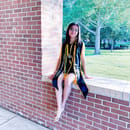“I hate you, I love you” — that’s often how I feel about resumes. I hate how hard it can be to consolidate your experiences, education and goals into a single-page document. But, I love that a good resume can actually make you feel confident about your qualifications and can be the catalyst to scheduling that interview.
I submit my resume all the time. As a student in her last few semesters at UCF, I’m trying to gain as many experiences as I can before graduation! These are the tips that have helped me stay sane when submitting resume after resume for a variety of scholarships and opportunities.
- Make a master resume
-
Don’t reinvent the wheel each time you need a resume. Since each resume you submit should be tailored to the application, you should only include relevant education, experiences, work, etc. on that resume. Rather than wrack your brain each time you submit a resume, create a giant resume in advance where you dump all the experiences that you might ever want to include. Then, just copy-paste the relevant experiences to craft an individualized resume. I promise this will save you so much time and heartache. Be sure you keep your master resume updated so that you always have an accurate record of your own experiences.
- Know your industry’s resume standards
-
Do your research on the resume standards for your industry. If you’re in a creative field, a resume with pops of color, creative formatting and graphics might be appropriate. If you’re in a STEM or health professions field, a more plain, black-and-white resume may be expected. It’s on you to do the research!
- Consider the aesthetics and formatting
-
Sure, your resume is no aesthetic bullet journal, but appearance is still important. Is your text crammed in on the page in a tiny font? Are you using serif or sans serif fonts, or a combination? What size are your margins?
These are some of my tips; they’re obviously not the end-all-be-all, but they have helped me create aesthetically-appealing resumes. Use what helps you!
- Fonts: Serif fonts tend to look better for headings, while sans serif looks better for body text.
- Dividers: Add a horizontal line to visually divide your resume into separate sections.
- Bullet points: If you’re using bullet points, make the font for the bullets themselves smaller than the rest of your text; it saves space and looks neater than huge bullets.
- Skills Section: If you have a skills section, try making a two-column or three-column table with invisible (white) borders. Then, add your skills to the columns. For example, you could split your skills into a “hard skills” column and a “soft skills” column.
- Margins: Consider using a 0.6-0.7 inch margin rather than a one-inch margin. I attended a mock resume review with a hiring manager, and she said that when she sees large margins, it says to her that the applicant doesn’t have enough experience to list.
- Proofread. More than once.
-
You’re so much more than your resume. But when an employer looks at your resume (and/or cover letter), that’s the only representation they have of you before you come in for an interview. If your header fonts are inconsistent, or if you italicize dates in some places and underline them in others, it’s going to convey that you’re a sloppy person. I spoke with another person involved in the interview and hiring process at his company, and he said that some applicants would misspell common words (including their own names) on their resumes. Just think how much you can stand out from the crowd if you take the time to just proofread carefully!
- Get someone (knowledgeable) to review it
-
A second (or third, or fourth) pair of eyes will catch things that you missed in your proofreads. You could ask a friend or family member to read your resume. If you’re a college student, your university should have a career center where advisors and coaches can review and provide feedback on your resume. As a UCF student, I have attended several Career Services workshops and sessions on creating resumes. You can also schedule a free, one-on-one resume review session through UCF Handshake.
I hope these tips help you love, and not hate, the process of creating a resume! The advice here has helped me submit resumes that have opened opportunities for scholarships, internships, shadowing, and jobs. It may be daunting creating your resume, but keep at it, and I know this document will become a key to opening doors in your life.




